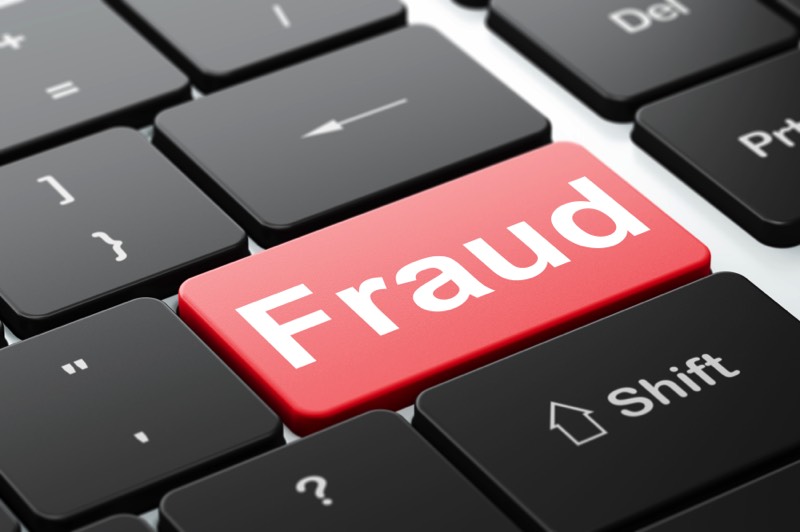LEGAL
Surrey’s Premier Lifestyle Magazine
How safe is your house? Protecting your property from fraud
Kevin Healy, Partner at Mundays LLP, looks at ways of safeguarding our most precious asset from fraud.

PHOTO COPYRIGHT: Alexandre Zveiger | 123RF.COM
In an age of ever growing and increasingly more sophisticated cybercrime, ID theft, fraud and money laundering, more and more of us are being vigilant in the emails we accept, where we send our money and monitoring our credit rating on the numerous ID theft protection websites such as Experian. How many of us, however, think to protect what is our single largest asset, our home?
A recent spate of high profile legal cases has exposed the risk posed to homeowners and landlords from unscrupulous fraudsters, as well as highlighting the increase in these types of fraud.
Two cases, in particular, should be noted:
• P & P Property Limited v (1) Owen White & Catlin, and (2) Crownvent Limited In this case a fraudster posing as the owner of a property in Hammersmith instructed a lawyer and estate agent on his behalf to advertise and dispose of the property. He said he was living in Dubai and needed a speedy sale as the property was unoccupied. A quick sale took place and completion monies sent to a Dubai bank account. The fraud only came to light when the real owner walked past his property and saw builders ripping out the kitchen.
• Dreamvar (UK) Limited v Mishcon de Reya A fraudster impersonating the owner of an unoccupied and unmortgaged property purported to sell the property to a development company. The developer planned refurbishment and onward sale, however, the fraud was discovered by the Land Registry.
Protect your identity from ID theft by maintaining robust and secure passwords on all accounts and electronic devices. Take care on how you dispose of personal information such as old bills and to whom you provide personal details.
A recent spate of high profile legal cases has exposed the risk posed to homeowners and landlords from unscrupulous fraudsters, as well as highlighting the increase in these types of fraud.
Two cases, in particular, should be noted:
• P & P Property Limited v (1) Owen White & Catlin, and (2) Crownvent Limited In this case a fraudster posing as the owner of a property in Hammersmith instructed a lawyer and estate agent on his behalf to advertise and dispose of the property. He said he was living in Dubai and needed a speedy sale as the property was unoccupied. A quick sale took place and completion monies sent to a Dubai bank account. The fraud only came to light when the real owner walked past his property and saw builders ripping out the kitchen.
• Dreamvar (UK) Limited v Mishcon de Reya A fraudster impersonating the owner of an unoccupied and unmortgaged property purported to sell the property to a development company. The developer planned refurbishment and onward sale, however, the fraud was discovered by the Land Registry.
Protect your identity from ID theft by maintaining robust and secure passwords on all accounts and electronic devices. Take care on how you dispose of personal information such as old bills and to whom you provide personal details.

PHOTO COPYRIGHT: Maksim Kabakou | 123RF.COM
More than 50,000 homeowners have signed up to the Land Registry’s free Property Alert Service since its introduction in March 2014. This free service is one of a number of measures introduced by the Land Registry with the aim of helping members of the public protect themselves from fraud. According to national statistics, fraud has increased significantly year on year since 2012. It is now more important than ever to be cautious and vigilant when it comes to protecting your assets and in particular your home.
The Land Registry’s innovative system allows homeowners to detect fraud and fraudulent activity as early as possible by sending them email alerts when certain activity is carried out on the monitored property. Monitored activities include a mortgage being taken out against the property, or an application to change ownership details. Each homeowner can monitor up to ten registered properties in England and Wales. This is particularly useful for landlords as rented properties are more at risk. A property is also more likely to be targeted by fraudsters if it is empty, there is no mortgage secured against the property and if it is not registered at the Land Registry.
The Property Alert Service from the Land Registry is a very useful tool in providing an early warning of suspicious activity, however, it does not automatically prevent fraud from happening. It does not prevent an action from taking place, but it does notify an owner as soon as an unregulated activity is attempted. There are a number of options for those looking to safeguard their property and simple steps can be taken to try and protect yourself:
• If the property is unregistered, take legal advice on how to submit your title deeds to the Land Registry as a voluntary application to have your deeds registered. It is only compulsory to register title if you purchase a title that is unregistered at the point of sale or charge.
• You can ask your solicitor to apply for a restriction to be placed on the Register if the property is rented, it is empty or if there is no mortgage registered against that property. This restriction will state that the property cannot be transferred or mortgaged without your solicitor or conveyancer supplying a certificate to the Land Registry and that the person applying to change the Register is you. Any solicitor or conveyancer is obliged to carry out identity checks on their clients whenever a transaction takes place.
• It is absolutely vital to keep your contact details up to date with the Land Registry so that they are able to contact you if necessary. You are allowed to give up to three contact addresses, which may be an email address or an address abroad.
• As mentioned, sign up to the free Property Alert Service offered by the Land Registry. This can be done online at www.gov.uk/property-alert or you can telephone the Property Alert team on 0300 006 0478. It is possible to monitor up to ten properties in England and Wales, even if you do not own them, so you could monitor for instance an elderly parent’s property or a property where you act as an attorney for the owner. If you suspect a property fraud is taking place, or has taken place, then you should call a property fraud line at the Land Registry on 0300 006 7030. If you have any concerns regarding property fraud, talk to the Mundays’ conveyancing team who would be happy to assist you.
• Keep your ID information secure.
It is also important to be vigilant when buying a property. It is the responsibility of the seller’s solicitor to properly identify its client. However, a good fraudster can obtain false ID documents.
There are obvious ‘red flags’ to look out for:
• Does the property look occupied?
• Did you never meet the seller at the home, or at all, and does the state and condition of the home match the people you are buying from?
• Has the seller accepted a low offer without any haggling?
In short, if something doesn’t feel right, then speak to your solicitor and ask them to make further enquiries.
The Land Registry’s innovative system allows homeowners to detect fraud and fraudulent activity as early as possible by sending them email alerts when certain activity is carried out on the monitored property. Monitored activities include a mortgage being taken out against the property, or an application to change ownership details. Each homeowner can monitor up to ten registered properties in England and Wales. This is particularly useful for landlords as rented properties are more at risk. A property is also more likely to be targeted by fraudsters if it is empty, there is no mortgage secured against the property and if it is not registered at the Land Registry.
The Property Alert Service from the Land Registry is a very useful tool in providing an early warning of suspicious activity, however, it does not automatically prevent fraud from happening. It does not prevent an action from taking place, but it does notify an owner as soon as an unregulated activity is attempted. There are a number of options for those looking to safeguard their property and simple steps can be taken to try and protect yourself:
• If the property is unregistered, take legal advice on how to submit your title deeds to the Land Registry as a voluntary application to have your deeds registered. It is only compulsory to register title if you purchase a title that is unregistered at the point of sale or charge.
• You can ask your solicitor to apply for a restriction to be placed on the Register if the property is rented, it is empty or if there is no mortgage registered against that property. This restriction will state that the property cannot be transferred or mortgaged without your solicitor or conveyancer supplying a certificate to the Land Registry and that the person applying to change the Register is you. Any solicitor or conveyancer is obliged to carry out identity checks on their clients whenever a transaction takes place.
• It is absolutely vital to keep your contact details up to date with the Land Registry so that they are able to contact you if necessary. You are allowed to give up to three contact addresses, which may be an email address or an address abroad.
• As mentioned, sign up to the free Property Alert Service offered by the Land Registry. This can be done online at www.gov.uk/property-alert or you can telephone the Property Alert team on 0300 006 0478. It is possible to monitor up to ten properties in England and Wales, even if you do not own them, so you could monitor for instance an elderly parent’s property or a property where you act as an attorney for the owner. If you suspect a property fraud is taking place, or has taken place, then you should call a property fraud line at the Land Registry on 0300 006 7030. If you have any concerns regarding property fraud, talk to the Mundays’ conveyancing team who would be happy to assist you.
• Keep your ID information secure.
It is also important to be vigilant when buying a property. It is the responsibility of the seller’s solicitor to properly identify its client. However, a good fraudster can obtain false ID documents.
There are obvious ‘red flags’ to look out for:
• Does the property look occupied?
• Did you never meet the seller at the home, or at all, and does the state and condition of the home match the people you are buying from?
• Has the seller accepted a low offer without any haggling?
In short, if something doesn’t feel right, then speak to your solicitor and ask them to make further enquiries.

Kevin Healy
has extensive experience in the field of property development, in particular commercial land acquisitions for residential developers, including joint venture agreements, development agreements and conditional contracts. He acts for a wide variety of clients including residential developers, national and local companies, private individuals and charities including housing associations.Kevin can be contacted on 01932 590 638 or kevin.healy@mundays.co.uk
essence info
Mundays LLPCedar House, 78 Portsmouth Road, Cobham KT11 1AN
Telephone: 01932 590500
Website: www.mundays.co.uk
The contents of this article are intended as guidance for readers. It can be no substitute for specific advice. Consequently we cannot accept responsibility for this information, errors or matters affected by subsequent changes in the law, or the content of any website referred to in this update. © Mundays LLP 2018.

